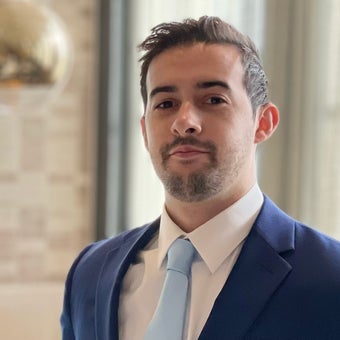University announces first-ever masters degree in 'Happiness Studies'
Centenary College announced the first of its kind degree in psychology on happiness.
A Yale University "happiness" professor told The New York Times Magazine that the culture of capitalism in the United States is crippling her students with anxiety.
"There’s an enormous culture around us of capitalism that’s telling us to buy things and a hustle-achievement culture that destroys my students in terms of anxiety," Laurie Santos, a cognitive scientist, told magazine writer David Marchese.
Santos, who teaches "Psychology and the Good Life," one of the most popular classes at Yale, said that people’s intuitions about what will make them happy and avoid anxiety are often misguided, pursuing short-term satisfaction in buying the new iPhone or chasing more money.
UNIVERSITY ANNOUNCES FIRST-EVER MASTERS DEGREE IN 'HAPPINESS STUDIES,' WILL COST STUDENTS $17,700

Group of five happy friends is running and jumping in sunset light on background of mountains. Happiness and friendship concept (iStock)
"After a busy day, I want to sit and watch crappy Netflix TV shows, even though I know the data suggests that if I worked out or called a friend, I’d be happier. But to do that I have to fight my intuition," Santos said.
She also suggests that modern people are fighting cultural forces that convince them they are not happy enough, or that happy could be just right around the corner, often flooding them with a river of information that they must determine the informativeness and benefit of.
Santos also notes that religion and spirituality can oftentimes cause people to be happier, not necessarily in belief, but in the actions and community formed from such beliefs.
"It seems to not be our beliefs but our actions that are driving the fact that religious people are happier. That’s critical because what it tells us is, if you can get yourself to do it — to meditate, to volunteer, to engage with social connection — you will be happier. It’s just much easier if you have a cultural apparatus around you," she said.
WORLD HAPPINESS REPORT REVEALS THE US HAS GOTTEN HAPPIER IN 2022

A women smiling and drinking coffee. (iStock)
Santos also pushed back on the idea that practices that increase happiness, such as accepting anxiety, avoiding comparison, and being satisfied with what is right in front of you, can lead to complacency. Referencing the work of Kostadin Kushlev, a Georgetown researcher, Santos said that people who self-report the highest positive emotions are also the ones who are taking action.
"When you do have some positive emotion, you have the bandwidth to deal with other things," she told the magazine.
When asked about the impact of social media on happiness and anxiety, Santos offered simple advice.
"Delete all your apps right now."
PET OWNER HAS 13 GOLDEN RETRIEVERS: 'HAPPINESS IS AN UNDERSTATEMENT'

A happy boy embraces a golden retriever. (iStock)
She added that she notices the biggest detriment of social media on students is them spending a lot of time on social media and thinking that they are being social, rather than talking to other people in real life. She also discussed an acronym she teaches students to analyze how social media is making them feel, W.W.W.
"What for, why now and what else? When you pick up your phone, what was that for? Was there a purpose? Then: Why now? Did you have something to do, or were you bored or anxious or fighting some craving? And then, what else?: actively noticing the opportunity cost. It could be studying. It could be talking to your roommate," she said.
Santos has adopted her popular Yale course into a podcast’s series called "The Happiness Lab," which has since been downloaded over 64 million times.










































